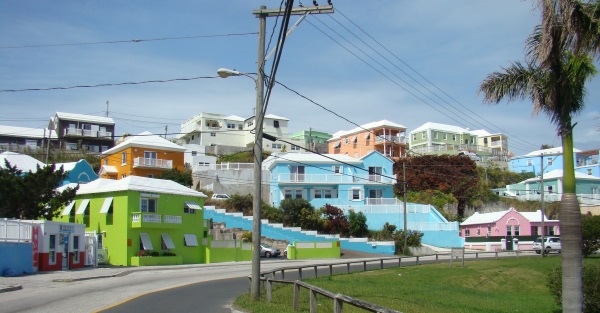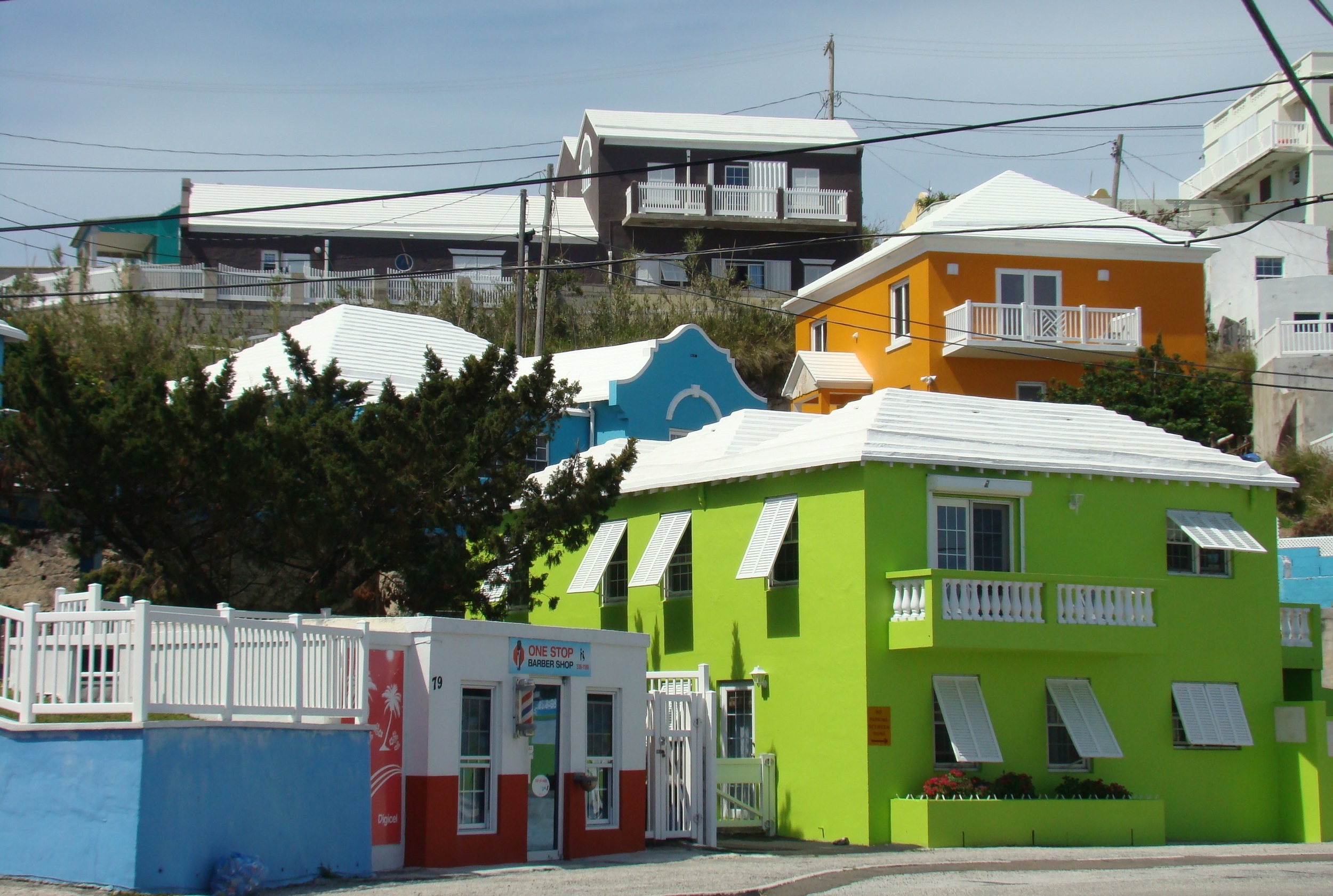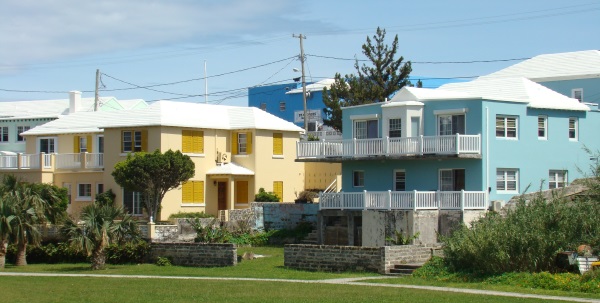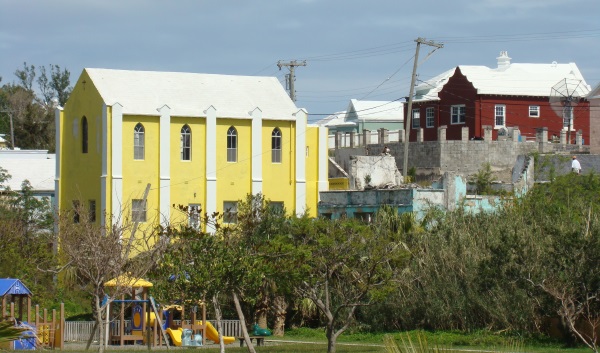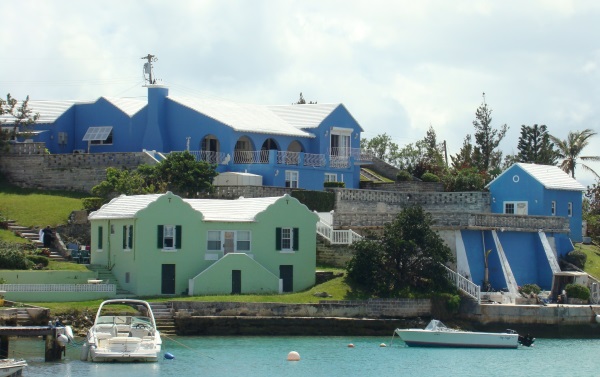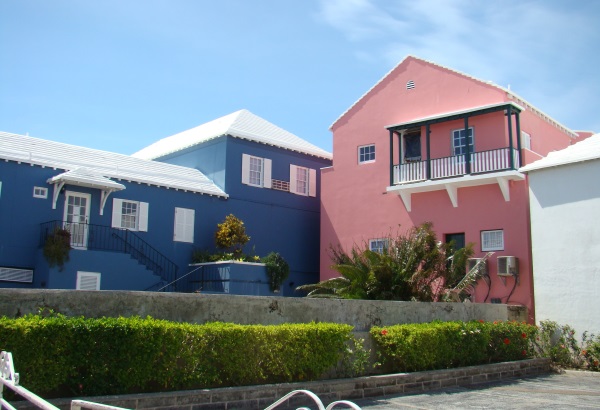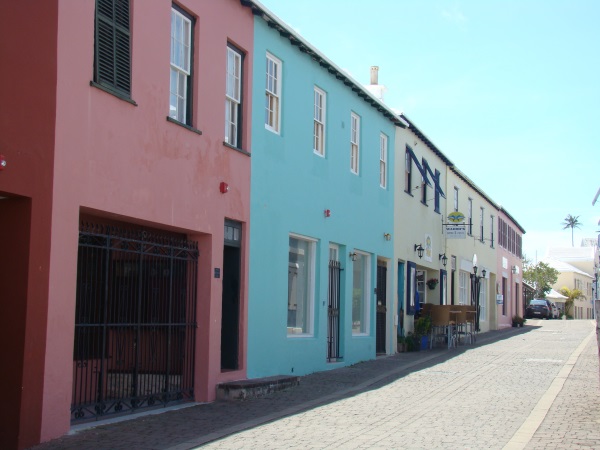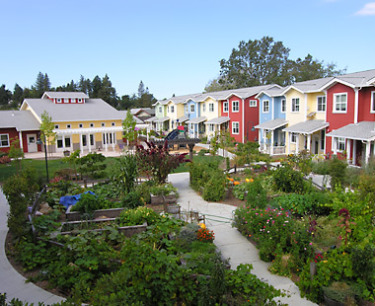It seems there is a shockingly slow realisation in Bermuda that we have left for development the difficult sloping sites. Everyone recognises "the easy sites are gone" but the natural conclusion to that statement doesn't seem to be uttered: "and we are stuck with the nasty hillsides!" It would be funny except it's true.
I grew up in a house with no front yard. There was no front yard because the house sits on a hillside and the only way my father could create a front yard was by spending ridiculous amounts of money on unsightly retaining walls. Even if he'd had the money, which he didn't, my grandfather the stone mason would have stopped him from being such a complete biscuit.
 blair house, image: jbennett fittsIn the western world front yards generally came about because of setbacks between houses and roadways - some mandated, some not - in the early 19th century. The purposes varied from allowing for a garden or avoiding the tenement look of urban areas to ensuring space for socialisation or, conversely, privacy. With the space established, regulations as to what could happen or be placed in the space later sprang up. Yes, you can have a garden gnome; no, you may not erect a basketball hoop. Yes, you can grow flowers; no, you cannot grow tomatoes. Go figure.
blair house, image: jbennett fittsIn the western world front yards generally came about because of setbacks between houses and roadways - some mandated, some not - in the early 19th century. The purposes varied from allowing for a garden or avoiding the tenement look of urban areas to ensuring space for socialisation or, conversely, privacy. With the space established, regulations as to what could happen or be placed in the space later sprang up. Yes, you can have a garden gnome; no, you may not erect a basketball hoop. Yes, you can grow flowers; no, you cannot grow tomatoes. Go figure.
It is probably past time, in Bermuda, to assess whether that front yard is really necessary. There are innovative hillside design solutions that result in wonderful, spacious houses where entertaining is fun and easy, parking is not a problem and there is no need to own a lawn mower.
Architect Bruce Bolander designed such a house in Malibu, California and it is featured in an article by Erika Heet, Up and Away, in Dwell magazine. Built on caissons, this compact house of 900 square feet has ample area for living, working and entertaining.
By the way, the house I grew up in has an enormous front balcony. I never felt I was missing anything due to the lack of a front yard.
